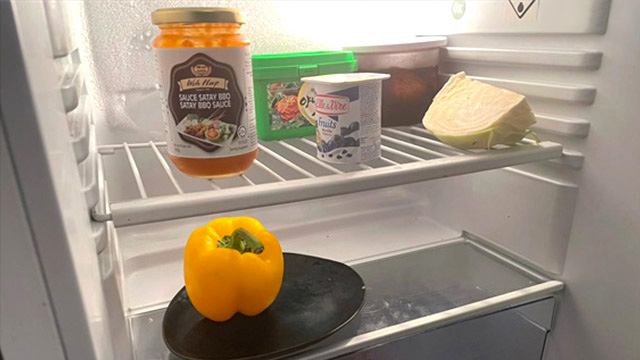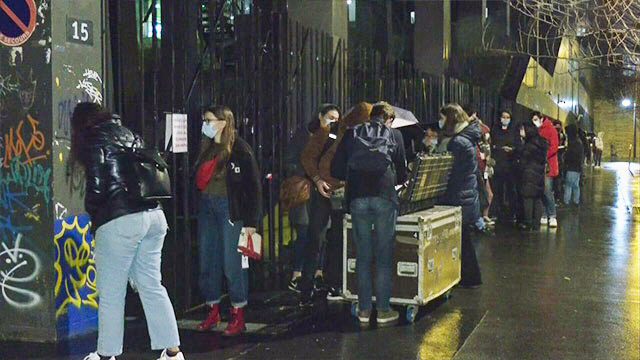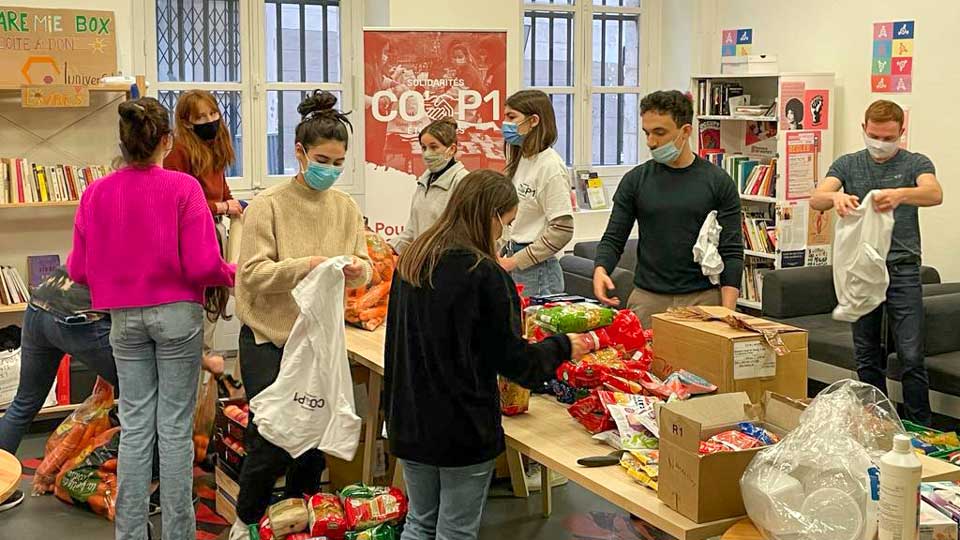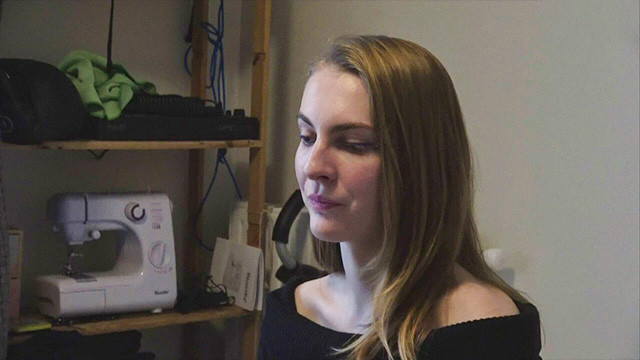"I suck a candy to try and distract myself from hunger," says Barbara Stratford, a 19-year-old cinema and audiovisual student at Sorbonne Nouvelle University in Paris. She can barely afford one meal a day.
Before the pandemic, Barbara covered her food rent, class materials and other expenses with about $660 per month. Her income came from part-time work as a movie extra and model, combined with an allowance from her mother. But in the fallout from the COVID-19 outbreak, job offers have vanished.
For nearly a year, Barbara has been living on what little money is left after paying for rent and class materials. She says even the cost of sanitary items is a burden.
"My mother is single. I know her budget is tight. I can't ask for more help from her," Barbara says. "How is it possible I can't even afford daily necessities? It really saddens me."

Linkee, a community organization in Paris, provides free food rations for the homeless and unemployed. It reports a rapid increase in the number of students using the service since the pandemic began. The organization has regular dates for student handouts, and there are often hundreds of people lined up.
"I have lost 10 kilograms since March last year and I now weigh 37 kilograms," says a female sophomore. "I still have one meal a day, only dinner. But it's all right. I'm used to it."

Why students are struggling
France is known for generous social security coverage as a tradeoff for high taxes. In response to the pandemic, the government has eased requirements for unemployment allowances, offering support for a wide range of people. But students who’ve lost their income from part-time jobs are in principle not deemed unemployed and remain ineligible.
In a survey conducted last summer by a federation of student associations, as many as 74% of respondents said they are financially troubled and being forced to skip meals. An overwhelming majority, 84%, are considering quitting school, while 23% report suicidal thoughts.
Jean Pisani-Ferry, Professor of Economics at the Paris Institute of Political Studies, is calling for change. "France's social security system is designed to cover existing risks, not COVID-19. That's why new measures are urgently needed," he says.
The French government rolled out a program this year to offer university students up to two meals a day for 1 euro. Yet some student groups claim that there are many who can't even afford that.

Ulysse Guttmann-Faure is a 19-year-old student of law and politics at the University of Paris 1 Pantheon-Sorbonne. Last summer, he launched a support group called "Co'p1-Solidarités Étudiantes (Co-op-1 student solidarity)". It hands out 5-kilogram boxes of free food, including fruits and vegetables, twice a week. About 500 students rely on the service.
Ulysse says government support remains insufficient. "We students may not be the only ones suffering from the pandemic, yet, we are among the hardest-hit," he says. "We shouldn't be sacrificed. We must not be forgotten."

